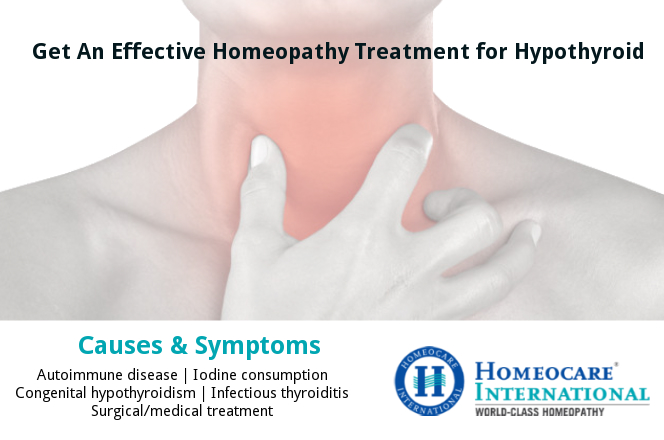Thyroid is an over or under functioning of endocrine gland in the neck. It is the most common problem faced by many individuals mostly women. Endocrine gland is a spongy butterfly shaped gland and it produces hormones called as Thyroid hormones. These hormones control metabolic process and protein synthesis in the body. There are several different types of Thyroid Problems and most commonly seen are Hypothyroidism and Hyperthyroidism.
What are Hyperthyroid and Hypothyroid Disorders?
Hyperthyroid disorder
Hyperthyroidism is a state where endocrine gland becomes hyperactive and produce excessive amount of Thyroid hormones called Thyroxine (T4) and triiodothyronine (T3). These hormones regulate body’s metabolism and hyperthyroidism increases your metabolism and leads to health issues.
Hypothyroidism Disorder
Hypothyroidism is exactly opposite of hyperthyroidism condition. Hypothyroidism is a common endocrine disorder which many people are facing now days. Hypothyroidism is a condition where Thyroid gland fails to or do not produce enough Thyroid hormones called Thyroxine (T4) and triiodothyronine (T3). Hypothyroidism is an auto immune disorder. There are two types of hypothyroidism namely primary hypothyroidism and secondary hypothyroidism.
Causes and symptoms of Hypothyroidism
Causes
The most common causes of hypothyroidism are Hashimoto’s thyroiditis, iodine deficiency, treatments, pituitary diseases, radiation therapy, congenital diseases and Thyroid removal.
Symptoms
Symptoms of hypothyroidism vary from person to person and depending on severity of hormone deficiency and individual’s health status. Some common symptoms of hypothyroidism include
- Fatigue
- Weakness or sensitive to cold
- Constipation
- Weight gain
- Dry skin and hair
- Depression
- Lack of concentration or poor memory
- Abnormal periods
- Irritability
Causes and symptoms of hyperthyroidism
Causes
There are several factors that lead to hyperthyroidism in individuals like thyroiditis (inflammation of thyroid), Graves’s disease, excess iodine, tumors of Thyroid gland and toxic adenomas.
Symptoms
Symptoms and signs of hyperthyroidism differ from person to person, mostly seen symptoms of hyperthyroidism are
- Swollen or enlarged Thyroid gland
- Nervousness
- Irregular heartbeat
- Increased appetite
- Sleeplessness
- Lack of concentration
- Heat sensitivity
- Mood swings
- Weight loss
- Hair Loss
- Increased bowel movements
- Tremor or shaking in hands and fingers
- Abnormal periods
- Thinning Skin
Control hypothyroidism with homeopathy
Homeopathy treatment for hypothyroidism is very effective and is capable of treating hypothyroidism completely. Hypothyroid treatment in homeopathy is safe and painless as it uses natural substances in treatment and it has no side effects. Homeopathy treatment for hypothyroidism improves body’s immunity and also helps to control symptoms of hypothyroidism. Homeopathy remedy for hypothyroidism targets at stimulating Thyroid gland. Hypothyroid treatment in homeopathy improves the production of Thyroid hormones by correcting internal imbalance.
Homeopathy treatment for hypothyroidism and hyperthyroidism
Homeopathy treatment for Thyroid disorders is very effective in treating both hypothyroidism and hyperthyroidism problems in individuals. Homeopathy treatment aims at improving body’s immune system, targets body’s self healing process and hence treats Thyroid disorder and its symptoms. Homeopathy for Hyperthyroidism is also very efficient in treating the causes and symptoms of hyperthyroidism completely.









my problem hyperthyroid use ur medicine